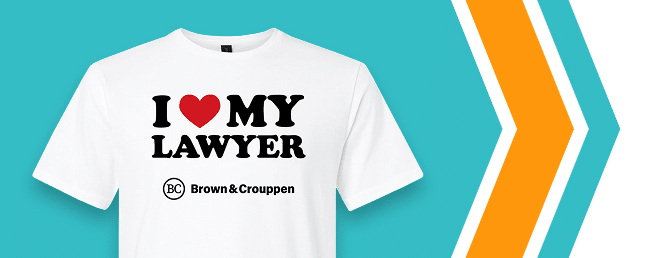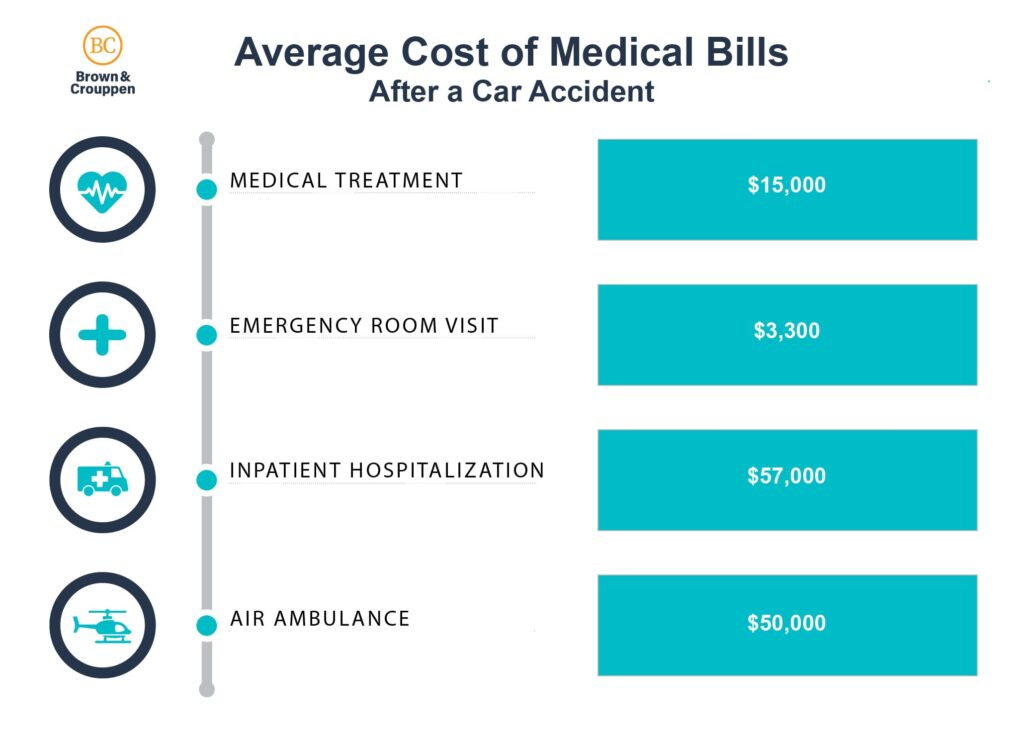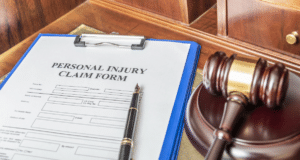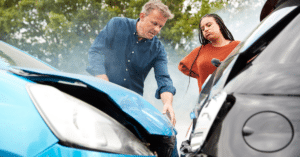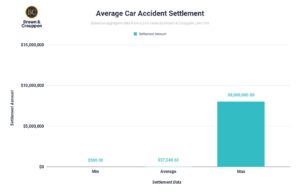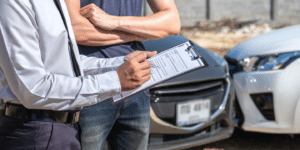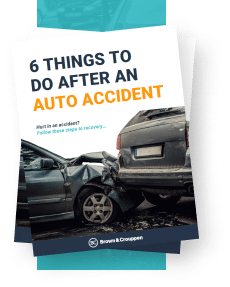If you or a loved on has been injured in an auto accident, you may be eligible to recover financial compensation for damages (such as hospital bills) through a personal injury claim. A free case evaluation from a personal injury attorney can help you understand your legal options, and build a strong case to recover financial compensation if eligible.
Who Pays for Medical Bills After a Car Accident?
Assuming you have health insurance coverage and the crash occurred in Missouri, you should look to your health insurance policy to pay your related medical bills regardless of who is at fault for the collision. However, if it turns out that someone else is at fault for the crash, your healthcare provider has the right to seek reimbursement for all medical bills paid on your behalf from the at-fault party. Consider the above and benefits of getting a lawyer after an auto accident before you agree to settle a case.
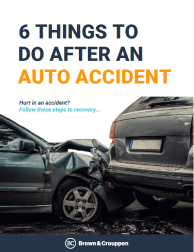

Use our legal checklist to learn what to do after an accident and understand key legal considerations for recovering financial compensation.
You are ultimately responsible for your medical bills, even if you had health insurance coverage at the time of the crash. However, there are alternative ways to cover related medical bills if you do not have health insurance. Medical payments coverage is available from automobile carriers and can be purchased to offset any medical bills not covered by health insurance, such as deductibles or copays. The cost of medical payments coverage is meager and is a type of no-fault insurance that is paid even if you are responsible for the crash. Typically, coverage applies to anyone in the vehicle at the time of the crash. Consult with your automobile insurance agent about medical coverage before getting into a collision.
The Importance of Maximizing Recovery
You are responsible for your medical bills, regardless of health insurance or medical payment coverage. Therefore, it is essential to seek total compensation for your damages. If you are not responsible for the crash, the recovery amount depends on the personal automobile insurance coverage or the number of damages. The key to maximizing your recovery is to retain the services of an experienced accident attorney to investigate all available means.
Uninsured and Underinsured Motorist Coverage
A recent study by the Insurance Research Council determined that about one in eight drivers don’t have any automobile insurance despite the law requiring all motorists to have automobile insurance. Most states, including Missouri and Illinois, only require a minimum of $25,000 in personal automobile liability coverage per person for any single crash and $50,000 combined total coverage for any single crash. That means you may not even be able to recover $25,000 if three or more people are injured in the same crash. Therefore, it is essential to carry uninsured motorist coverage and underinsured motorist coverage for your damages.
Uninsured coverage is triggered if the at-fault party fails to carry any liability insurance. Underinsured coverage qualifies if the at-fault party has liability insurance in an amount less than your damages. Underinsured motorist coverage may pay up to the dollar amount of damages assessed.
Investigating Additional Recovery Sources
Since most drivers do not carry sufficient liability insurance to pay back all of the related medical bills or adequately compensate the injured party for their damages following a crash, be sure to investigate all potential sources of recovery. For example, vehicles involved in the collision should be examined to determine if any of the vehicles’ collision mitigation systems directly caused or contributed to the accident. Automatic braking systems, emergency lane detection systems, passive restraint systems, and other potential product failures should be examined to determine if they played a part in the crash.
If any of the vehicles’ systems caused or contributed to the accident or your injuries, it may be possible to bring a product liability action against the vehicle manufacturer to compensate you for your damages adequately.
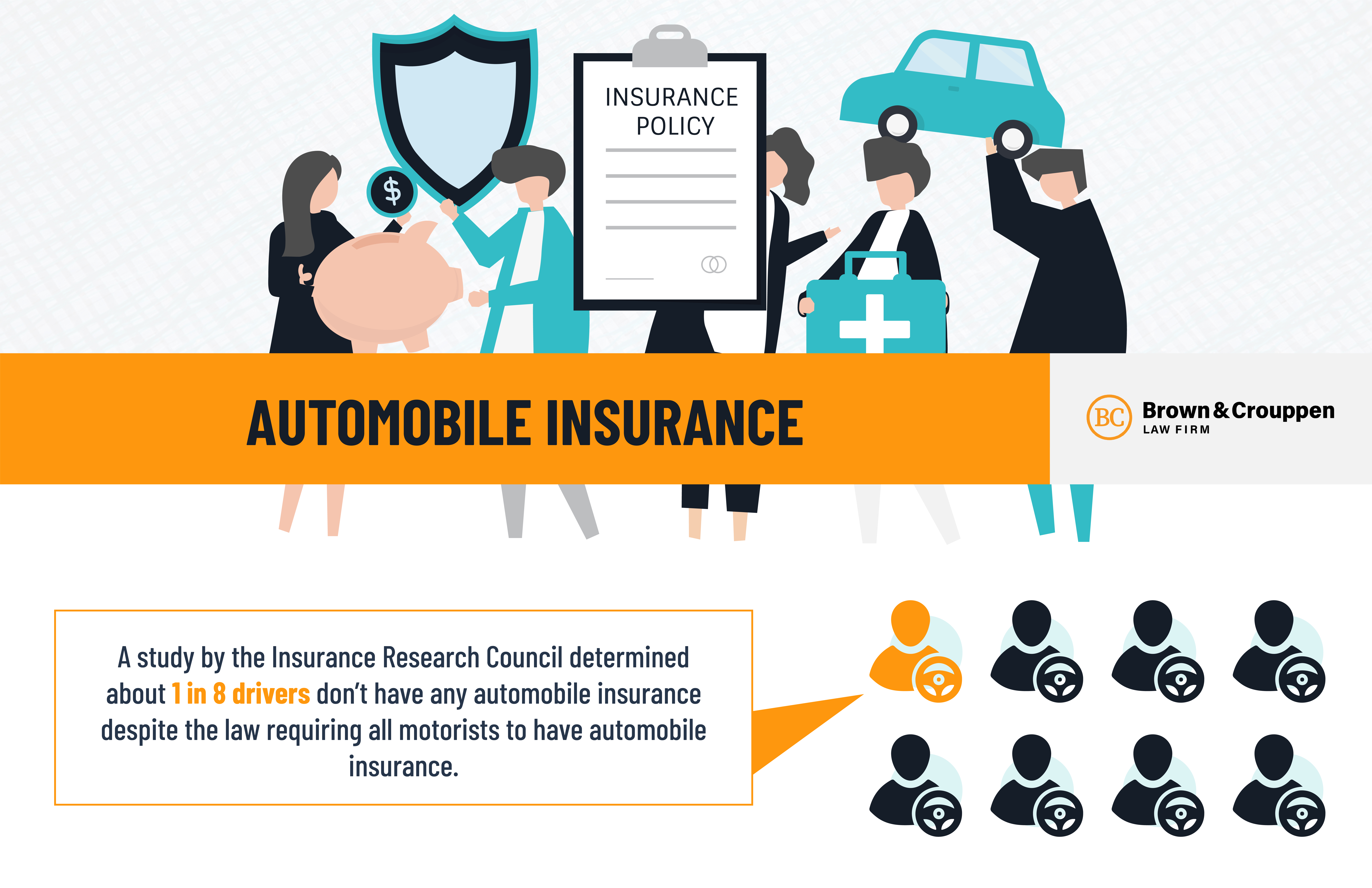
Legal Process and Medical Bill Payment
Even if another person is at fault for the crash, they are not legally required to pay your medical bills. If you bring a lawsuit against the at-fault party, it could take years to obtain a judgment, and the judge or jury will set the judgment amount. The decision will not specifically order the at-fault party to pay a medical bill. However, you can pay the medical bill out of the money obtained to satisfy the judgment if the medical provider is willing to wait that long to be paid.
No-Fault State Considerations
If an accident occurs in a no-fault state, the car insurance company should pay some or all medical expenses. Once medical bills exceed the no-fault limit per state, the driver is responsible for the remaining medical bills. After meeting out-of-pocket requirements, medical bills are covered through the health insurance carrier. If you do not have health insurance and get hurt in an accident, you will have to make payment arrangements with your healthcare provider.
Maintaining Insurance Coverage and Legal Representation
As you can see, the typical car accident settlement amount is generally dependent on the amount of available insurance unless there is some other cause of the crash. It is essential to maintain health insurance coverage and personal automobile insurance coverage. If you are in a crash at no fault of your own, please retain an experienced car accident lawyer who can explore all possible recoveries to maximize your car accident settlement.


